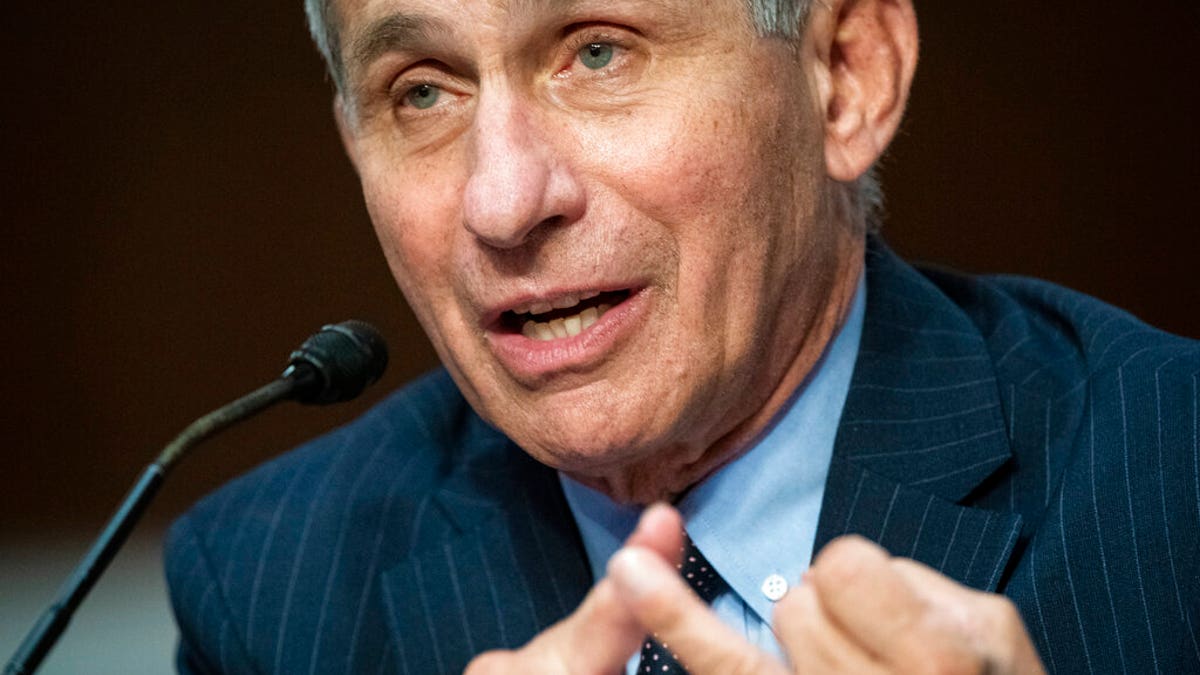Dr. Ramin Oskoui on how long protection from a potential coronavirus vaccine might last
Dr. Anthony Fauci suggests a coronavirus vaccine might require a booster shot to continue its protection; reaction from cardiologist Dr. Ramin Oskoui, CEO of Foxhall Cardiology.
The U.S. is still "knee-deep" in the first wave of the coronavirus pandemic, as officials continue to announce record-breaking surges of new cases in some parts of the country, Dr. Anthony Fauci said Monday.
Fauci, the director of the National Institute of Allergy and Infectious Diseases, said the resurgence in places like Texas, Florida, Arizona and California, where cases have skyrocketed at an alarming pace over the last few weeks, "would not be considered a wave."
"It was a surge or a resurgence of infections superimposed upon a baseline," he clarified.
"If you look at the graphs from Europe, the European Union as an entity, it went up and then came down to the baseline. Now they're having little blips, as you might expect, as they try to reopen. We went up, never came down to baseline, and now we're surging back up."
CLICK HERE FOR COMPLETE CORONAVIRUS COVERAGE
About 50,000 new cases were recorded Monday, bringing the total positive cases of coronavirus to nearly 3 million in the U.S., according to data from Johns Hopkins University.
Fauci testified to Congress last week that the daily number of infections could reach 100,000 a day if the government does not reign in the outbreak soon. He added Monday that the country's handling of the pandemic is “really not good."
President Trump has repeatedly rejected calls to make mask mandates a federal rule, and his chief of staff Mark Meadows told “Fox and Friends” Monday that the president sees the issue as a “state-to-state” matter.
DR. TOM FRIEDEN: CORONAVIRUS HAS THE UPPER HAND, BUT WE CAN STILL STOP THE VIRUS
Fauci, a key member of Trump's coronavirus task force, said the new cases are attributable to reopenings, which in some states have halted due to the resurgence of cases.
“A series of circumstances associated with various states and cities trying to open up in the sense of getting back to some form of normality has led to a situation where we now have record-breaking cases,” Fauci said in a web interview with National Institutes of Health director Francis Collins.

Director of the National Institute of Allergy and Infectious Diseases Dr. Anthony Fauci speaks during a Senate Health, Education, Labor and Pensions Committee hearing on Capitol Hill in Washington, Tuesday, June 30, 2020. (Al Drago/Pool via AP)
In California, dozens of counties have been ordered to close bars and restaurants and halt phased reopenings of businesses.
In parts of Texas, some hospitals are teetering on the brink of over-capacity due to new hospitalizations.
DR. ATLAS: NEW CORONAVIRUS CASES SHOULD NOT BE THE FOCUS-- IT SHOULD BE HOSPITALIZATIONS, DEATHS
Although COVID-19 is more lethal to older people, Fauci warned that young people are being infected at higher rates recently, a point that some local officials across states have been harping on as they point to a lack of social distancing and the unwillingness to wear a mask as factors in the new caseload.
“The average age of people getting infected now is a decade and a half younger than it was a few months ago particularly when New York and New Orleans and Chicago were getting hit very badly,” Fauci said.
State officials in Arizona said Monday that young people make up more than half of the over 100,000 cases in the state.
Fauci said that even if the virus doesn't result in death, young people exposed or infected to COVID-19 could spread it to other people and the illness could “put them out of action for weeks at a time.”
CLICK HERE FOR THE FOX NEWS APP
“They could infect someone who infects someone, and then all of a sudden someone’s grandmother, grandfather or aunt who’s getting chemotherapy for breast cancer gets infected,” he said. “You’re part of the propagation of the pandemic, so it’s your responsibility to yourself as well as to society to avoid infection.”










































